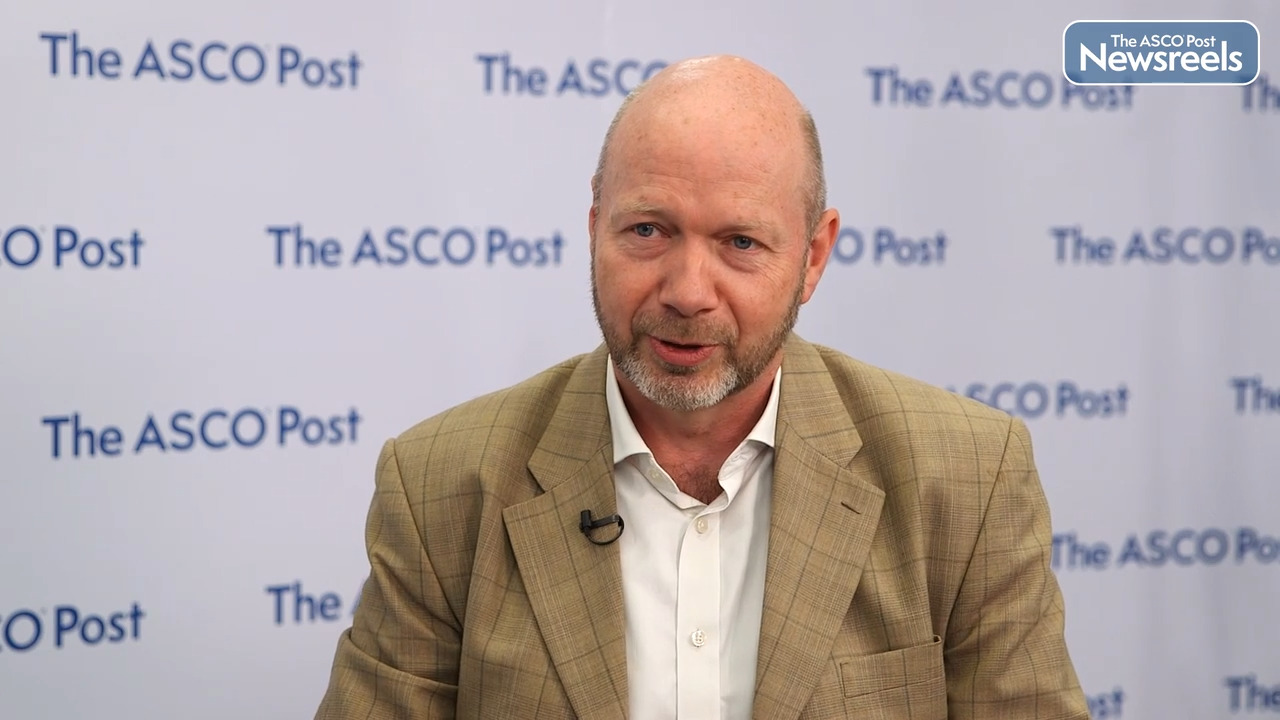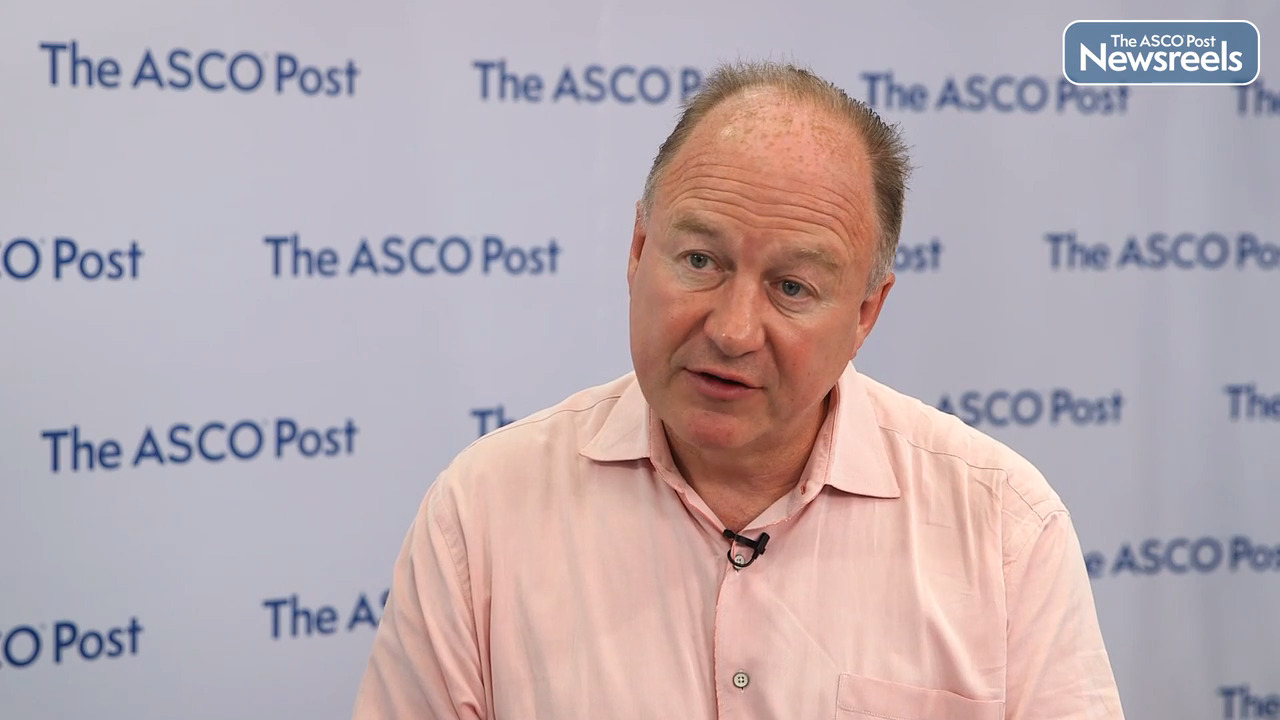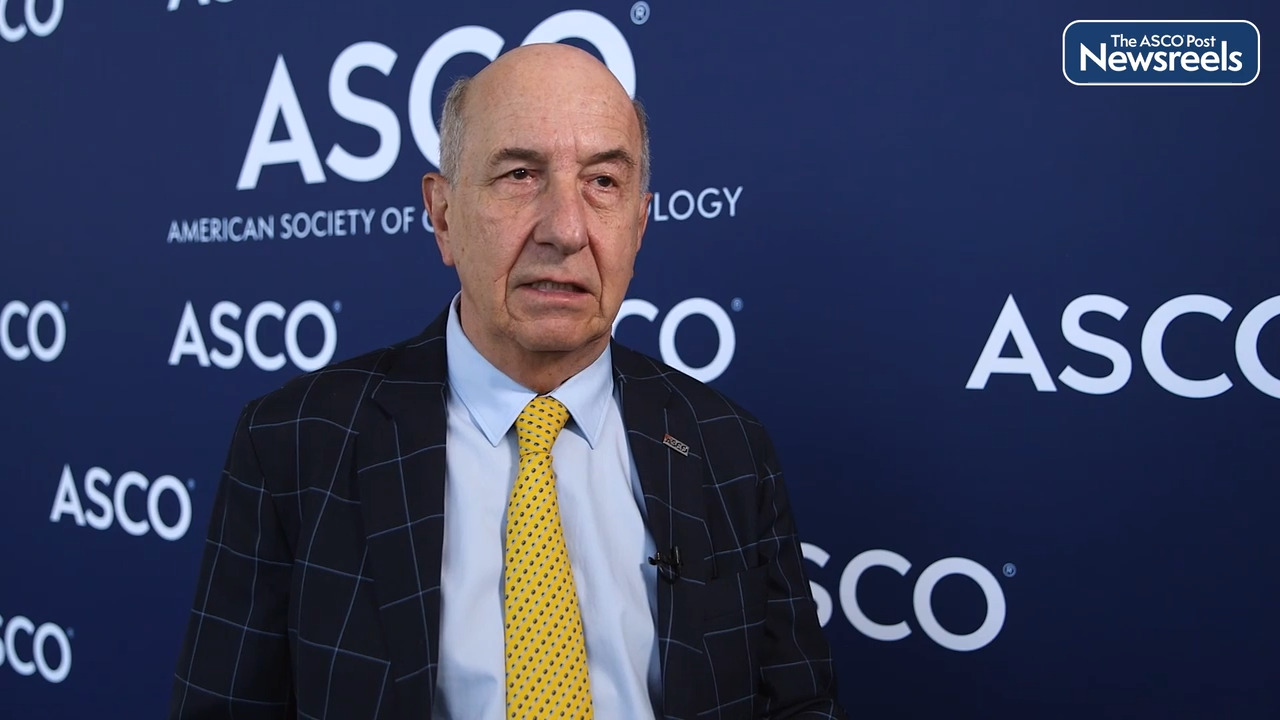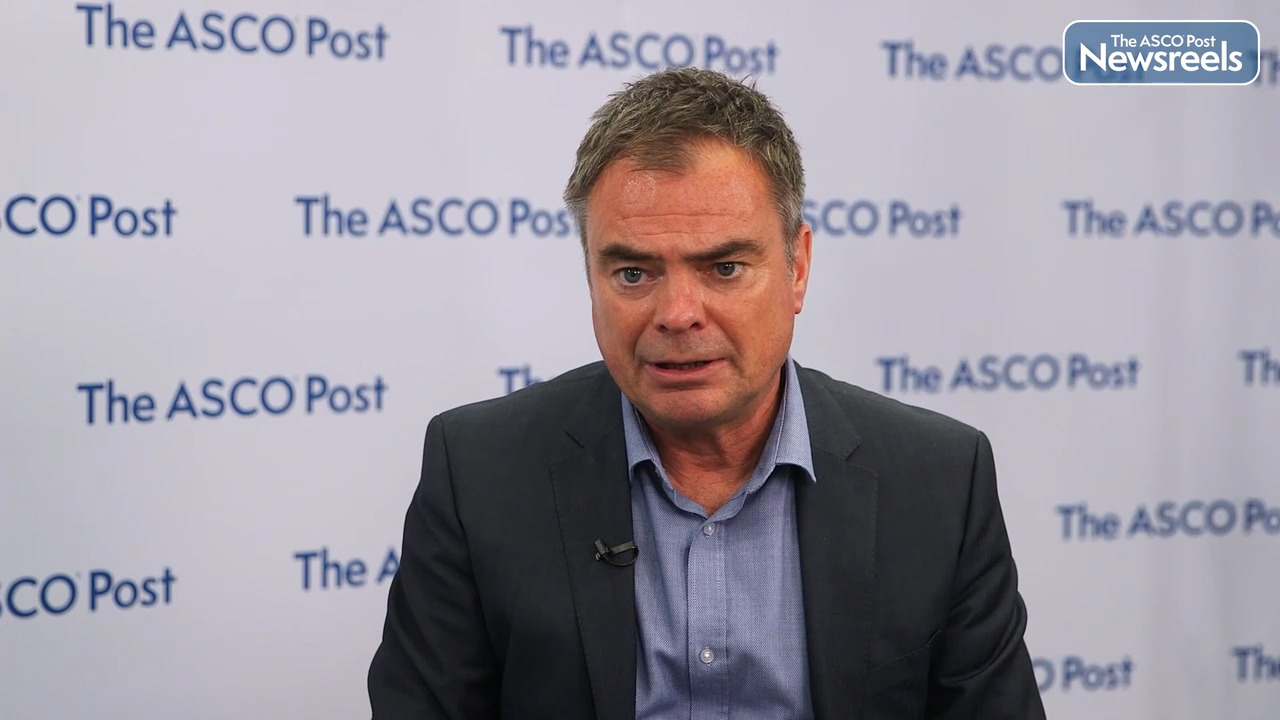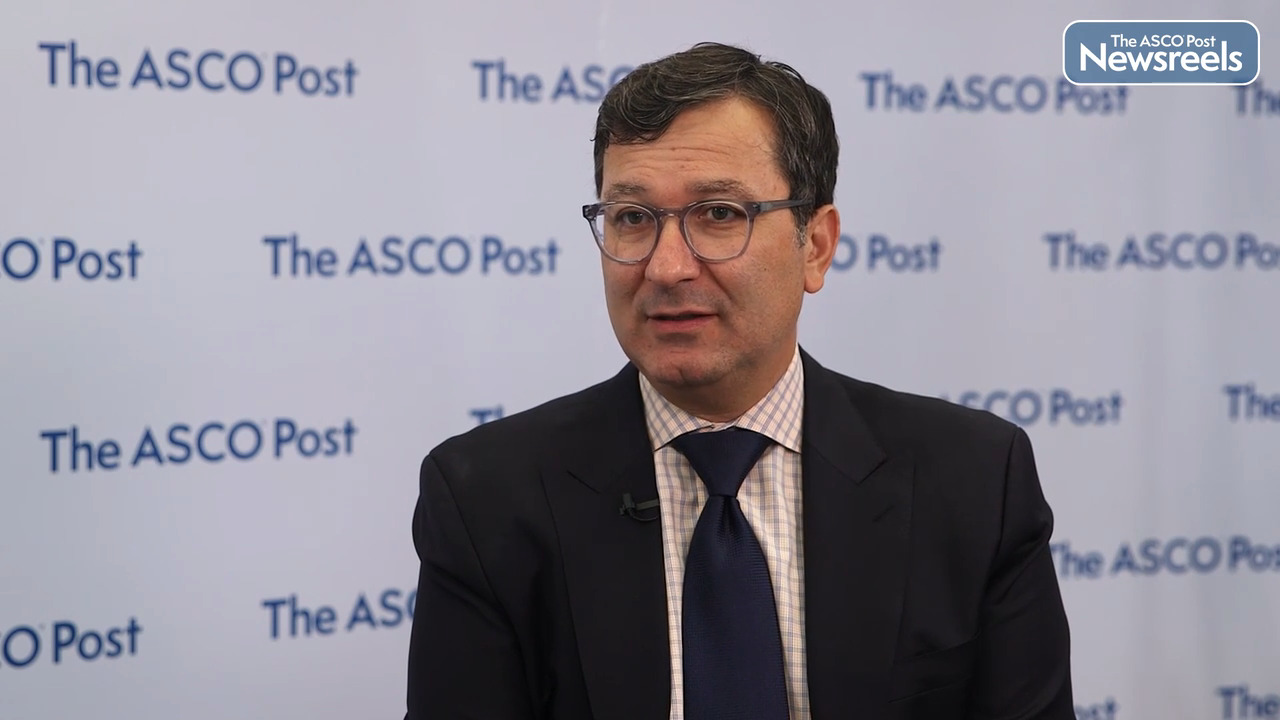Transcript
Disclaimer: This video transcript has not been proofread or edited and may contain errors.
Ann H. Partridge: Ian, exciting data that you showed at the meeting. Tell me about patritumab deruxtecan.
Ian E. Krop:
The data are encouraging. This is a new antibody drug conjugate. It is targets a protein called HER3, which is another cell surface protein that's over-expressed in a majority of breast cancers. And what we've seen or what's been known now for some time is that when this protein is over-expressed, it's associated with a poor prognosis. So you have a target that's over-expressed and associated with poor prognosis, makes it an interesting idea for a therapeutic target. But as of, up until now, there really hasn't been any drugs available to target HER3. So this new antibody drug conjugate was designed to take advantage of that and target HER3. So it consists of this monoclonal antibody, that's patritumab, coupled to that same deruxtecan payload that is used in trastuzumab deruxtecan. And this trial was basically looking at the safety and efficacy patritumab deruxtecan, or we call it HER3-DXd in-
Ann H. Partridge:
Much easier.
Ian E. Krop:
Yeah. And in basically all three major subtypes of breast cancer, hormone receptor positive HER2-negative cancers, triple negative cancers and a small number of HER2-positive cancers.
Ann H. Partridge:
So it works in all three, at least to some degree. Tell me about that. Did it work differently in the different subtypes?
Ian E. Krop:
Yeah, so I think that's really an important, kind of take home message here is that the drug did seem to have activity across all three subtypes, roughly 30% response rate in the hormone receptor positive patients, a little bit more than 20% in the triple negative and 43% actually in the HER2 positive group, but that's a small number of patients. I think the other interesting thing in addition to the response rate is that these responses tended to be durable so the durability of the response, the median was somewhere between six and eight months, depending on which cohort you looked at. And the PFS was about seven and a half months with the ER-positive patients and actually 11 months with the HER2-positive patients. So, we saw a pretty decent amount of activity and that tended to be durable.
Ian E. Krop:
I think the other important thing to mention is that these were pretty heavily pretreated patients. So for the ER-positive patients, the median number of prior lines of therapy was six in the advanced disease setting and in the HER2-positive group, it was five and a half. Triple negative, we had purposely restricted it to two prior lines of chemotherapy in the advanced disease setting. So these were pretreated patients and yet we saw, I think encouraging levels of activity across all three subtypes.
Ann H. Partridge:
That's fantastic. And tell me how tolerable it was. If people are going to be on it for longer, how are they doing when they're living-
Ian E. Krop:
Yeah, no, yeah, certainly an important question. So in general, the most common side effects were low grade gastrointestinal events like nausea.
Ann H. Partridge:
Manageable.
Ian E. Krop:
Manageable and hematologic toxicity. So there was thrombocytopenia, neutropenia seen, but nobody had to discontinue the drug because of that. By just doing dose holds and dose reductions, you were able to deal with the hematologic toxicity. That really didn't seem to be a substantial problem. And overall, I think, we had 10% of patients had to discontinue therapy because of adverse events, which is pretty and actually a pretty low percentage had to dose reduce as well. So I think both of those are signs of I think a manageable safety profile.
Ian E. Krop:
The one thing I do need to highlight though, is that interstitial lung disease or pneumonitis, which is a kind of a class effect of these deruxtecan payloads for the most part was seen in this trial is about 6.6%. Most of those were low grade, but one patient or about a half a percent of the people on the study did die of interstitial lung disease. So it's certainly something that we have to keep in mind and monitor for.
Ann H. Partridge:
Manage, pick up early, stop drug as you see it. Okay. And hair loss?
Ian E. Krop:
About 20%. So certainly, something that people need to be aware of before they go on.
Ann H. Partridge:
And what are the implications for this now? So we got a new target. We've got a payload that they may or may not have seen before. We'll see how we a sequence these ADCs in the future. Very exciting. But what are the implications now with regard to this new hot drug?
Ian E. Krop:
Yeah. So, I mean, I think, this was a small study, it was 182 patients overall, but in each subgroup it was not so big. The ER positive group was the largest, 113 patients. So I think we need to explore this in a larger data set. I think there's still some question about exactly what dose to use. It's an every three week schedule, but this precise dose, I think we can try to, I think it's worth trying to optimize a little bit and there's some studies going on now to look at that. But I think the next step is to do larger studies and I do think there's worth, there's value in looking across all three subtypes. But right now, to me, probably the biggest unmet need that this drug could fill is in these treatment refractory, hormone receptor positive patients because those, I think we're seeing in repeatedly that they don't really respond very well once they've been through a few lines of chemotherapy and I think that's, and there's a lot of patients. It's the most common subtype of breast cancer.
Ian E. Krop:
So I think that's where the unmet need is. We saw from the TROPIC's 02 trial and the control arm there, the response rate to chemotherapy was 14%, I think and PFS was four months. And that cohort looked very similar in terms of pretreatment to what we were treating in this trial. So I think it's an unmet need. I think we need to do a little bit larger studies to confirm that the kind of activity and durability we're seeing is similar and then a registration trial, I think, would be the next step.
Ann H. Partridge:
Very exciting. Well, thank you so much for joining me, Ian.
Ian E. Krop:
Sure. My pleasure. Thanks for asking.
